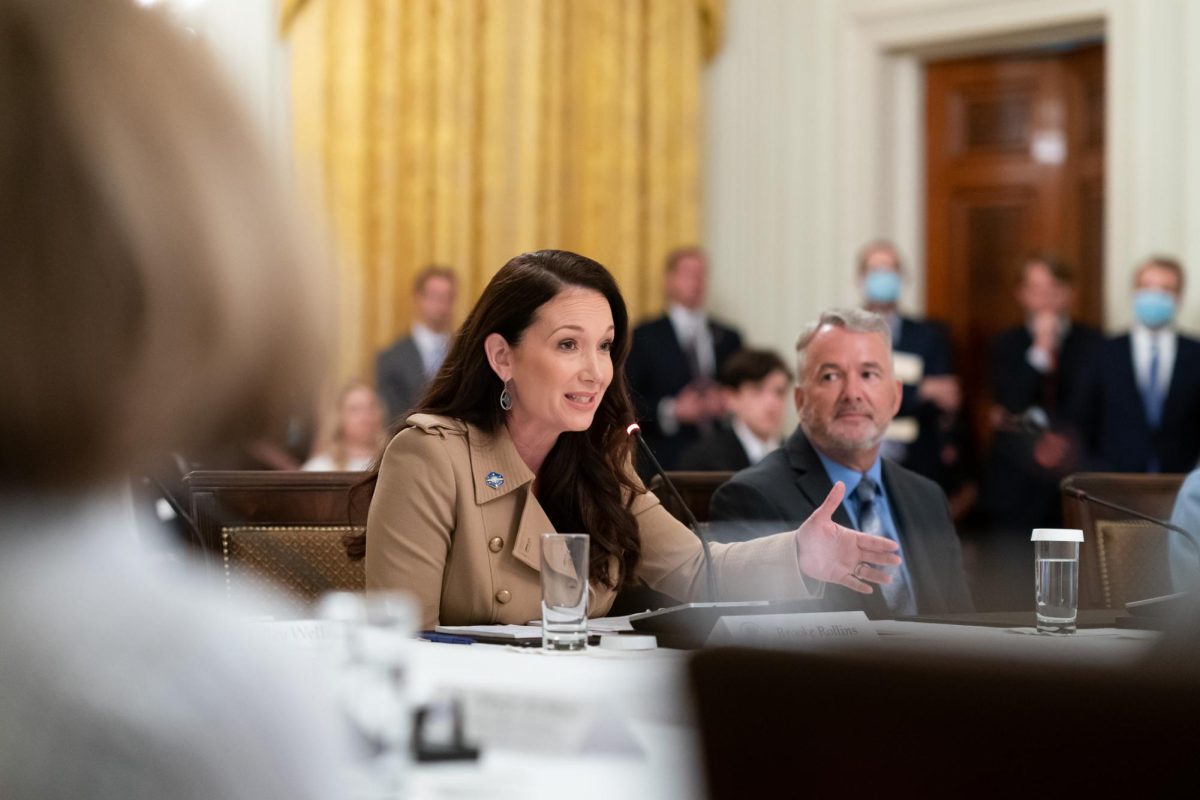In response to the #MeToo and Time’s Up movements, Congress has been working on new legislation to address the issue of sexual assault in the workplace.
The MeToo movement, first coined by activist Tarana Burke in 2006, went viral on social media last October after actress Alyssa Milano shared a tweet encouraging women who had been victims of sexual abuse to speak up. Milano’s tweet was in response to actress Alyssa Judd and other women speaking up about allegations of sexual assault against Hollywood producer Harvey Weinstein, which sparked a call for accountability in the entertainment and political scene. The Time’s Up movement began when Hollywood celebrities banded together to create a legal defense fund in response to the Weinstein effect.
As reported by the Associated Press, more than two dozen lawmakers across the nation resigned from office amid sexual assault allegations since the beginning of 2017. In response, the U.S. Senate passed a mandatory sexual assault training resolution in November, required for both Senate and House members. The resolution requires all representatives and their staff to complete mandatory sexual assault and harassment training within 60 days, to be repeated at least once every two years.
Hoping to take this legislation to the next level, Congresswoman Jackie Speier (D-CA), U.S. Senator Kirsten Gillibrand (D-NY), Representatives Ryan Costello (R-PA), Ann McLane Kuster (D-NH), Bruce Poliquin (R-ME), Jamie Raskin (D-MD) and Brian Fitzpatrick (R-PA) introduced the Member and Employee Training and Oversight On Congress Act to address the issues with the Congressional Accountability Act of 1995, which required Congress and the legislative branch to follow workplace and employment practices set forth in private businesses and the rest of the federal government.
Since the passage of the Congressional Accountability Act in 1995, millions of dollars have been used to settle sexual harassment claims, as outlined by Speier’s statement in November. Spier said she is proud both sides could come together to put an end to the inappropriate behavior on Capitol Hill.
“In 1995, Congress created the Office of Congressional Compliance (OCC) to protect itself from being exposed, and it has been remarkably successful,” Spier said in a statement. “Twenty years later, 260 settlements and more than $15 million have permanently silenced victims of all types of workplace discrimination. Zero tolerance is meaningless unless it is backed up with enforcement and accountability.”
The MeToo legislation sets forth provisions which include prohibiting non-disclosure agreements and requiring the OCC to conduct annual sexual assault training. Most importantly, the bill would provide legal representation to the victims and allow the complainant to work away from the office if requested. The bill would also require the name of the employing office and the amount of the award or settlement to be published on OCC’s website. The bill extends protections to unpaid congressional staff.
The Congressional Accountability Act is currently awaiting Senate approval, an action Senator Gillibrand said is not moving as fast as it should in her letter to Majority Leader Mitch McConnell back in February.
“The more time that goes by without addressing this broken system, the more people suffer,” Gillibrand said in her letter. “Offices suffer from the lack of certainty about what is required of them. Staffers suffer when they feel as though they have no place safe to turn in the face of harassment and discrimination. The taxpayers suffer when they are required to shoulder the financial burden of our elected officials’ poor behavior.”
When discussing sexual assault resources on Texas A&M’s campus, Kristen Harrell, associate director for the Dean of Student Life, said holding people accountable for their actions at all levels of society is something which needs to happen.
“I certainly think this is a critical subject and it’s certainly been in the spotlight nationally for the last few years and I think that’s good,” Harrell said. “I think we are finally having some more upfront conversations about this issue and we are starting to pay attention.”
The legal side of the issue
April 15, 2018
Photo by Via Creative Commons
U.S. Representative Jackie Speier was one of the legislators who introduced the Me Too bill in November.
0
Donate to The Battalion
Your donation will support the student journalists of Texas A&M University - College Station. Your contribution will allow us to purchase equipment and cover our annual website hosting costs.
More to Discover









